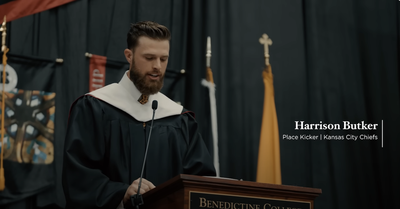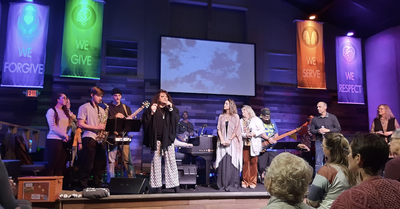One life at a time. That's how IMB missionary Claren Dease describes missionary work in this little-known South American country. "If you want to go to a country that has physical, medical, housing or dental needs, don't come to Uruguay," she said. "Uruguay doesn't have the kind of needs that you will see in Honduras or Peru. But Uruguay has the greatest spiritual need."
Claren, a native of Chatom, Alabama, has served with her husband Lyle in Uruguay since 1994. Together they are planting a series of churches in the interior department of San José, the only Uruguayan department without a Baptist witness when they arrived.
"We don't see the physical suffering here, but people need Christ," she explained. "They are suffering in a different way."
"The whole point of coming to Uruguay was because we were coming to an area where there was no Baptist work," explained Lyle, who was originally from Dothan, Alabama. "Now we have four works going with one constituted church and three other mission projects."
Church attendance ranges from 50-60 at the mother church in San José de Mayo to 15 at a rural mission point. "We have a pastoral team and a church planting team," Lyle reported. "The teams rotate Saturday nights, Sunday morning and Sunday nights among the four churches."
Before relocating to Uruguay, Lyle and Claren served churches in Walnut Hill, Florida, Bogalusa, Louisiana and Boiling Springs, Pennsylvania. Their ministry in Pennsylvania was through the North American Mission Board. Lyle is a graduate of the New Orleans Baptist Theological Seminary.
Church planting and evangelism is not easy in Uruguay, long considered one of the most secular countries in South America. "In the early 1900s, Uruguay established a secular government with a strong separation of church and state," explained Claren. "The Roman Catholic Church was stripped of everything, which was not a bad thing, but at the same time they threw everything out."
The mission reference book Operation World reported that just over six percent of Uruguayans are considered as evangelical Christians. Meanwhile, other reports from DAWN Ministries peg the number at 2.5 percent.
The couple said that much of the country's religious expression borders on new age philosophies. "We were sharing with a store owner who told us that he believes in God in his own way," said Lyle. "He thinks that all of us, whether we are Baptist or Methodist or Presbyterian or Buddhist are all going to come to one point and those paths are going to converge into God."
"This is very difficult," Claren added. "They are just very indifferent. That's the main barrier, they don't care."
"I like to say that if in the United States, people want to see where they are going with secular humanism stuff, they need to come to Uruguay to see where they are headed," she said.
"You end up with a society of very educated, very cultured and very proud people," she explained. "But they are also a very negative people and they don't have a very moral foundation. There are a lot of out-of-wedlock children and alcoholism is becoming more of a problem among teenagers."
Not only that, Uruguay has one of the highest suicide rates in the world. "There is the old standby of the Gaucho, the interior gentleman who is independent, sturdy and firm," Lyle said. "The problem is, if things get bad enough, there is no hope, nothing to pull them out of their condition."
"And, there is no standard that says there is anything wrong with taking your own life," Claren added.
Lyle feels that reaching men is important to the growth of the Uruguayan church. "We have a regular men's group that meets every Monday night to pray, study God's word and drink mate," Lyle reported, referring to a type of tea very popular in the southern cone of South America.
"We start low key with them, but the emphasis becomes more defined as you move them into the small group on Monday evening," Lyle explained. "Then you hit them harder with the Gospel."
The Dease family has seen a growing interest in spiritual things during their seven years in Uruguay. "The declining economic situation is making people look for answers," Lyle said. "In their search for answers, they are turning to religion, but not necessarily Christianity."
Another explanation for the growth is a burgeoning prayer network. "There is a network of intercessors whose goal is to have 10,000 people praying for Uruguay every day," Lyle explained. "They have more than half of that filled as of now. We alone have 300 people praying for us."
Lyle and Claren have seen the Lord use their ministry in a mighty way. "We have one member, José Luis, who was very skeptical," Lyle reported. "He grew up [as an] atheist and was very much against everything in the church because he saw it as a crutch."
Asked by a nephew to attend his baptism, José Luis, began to see things differently. "During one work project, the delivery of supplies was delayed. When the supplier arrived, he apologized to everyone because he had delayed the project. This touched José Luis very much.
"He saw for the first time a Christian man humble himself before other men," continued Claren. "He said, 'If God can cause this strong Uruguayan to humble himself in this way, that's what I am missing in my life.' He accepted Christ and now is a changed man."
"His wife hardly recognizes him anymore," Claren said. "We see the fruits of Jesus Christ in his life."
Lyle and Claren plan on continuing to reach Uruguayans for Christ. "We would like to form more church planting teams so they will individually start multiplying," said Lyle. "We are trying to get into 23 small villages in our area as quickly as possible. We hope to see 15 to 20 new churches in five years."
"Someone said to us recently that we seem very content," Lyle reflected. "We are very content and we know this is where God wants us and that we're doing what God has called us to do."
Kenneth D. MacHarg is a communications coordinator/missionary journalist with Latin America Mission (LAM) -- http://www.lam.org
A Great Spiritual Famine in Uruguay
Kenneth D. MacHarg
| LAM News Service
| Published: Jun 03, 2002










